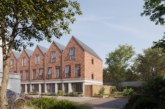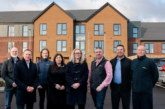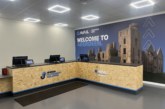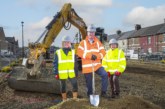The Royal Institute of British Architects (RIBA) has called on the Government and local authorities for urgent investment in housing to meet the growing demand for social housing. Homeless charity Crisis recently calculated that 90,000 homes need to be built a year in order to meet this demand. Paramount Timber Frame has gathered recent studies in the industry to calculate that if these houses were built using timber frame construction rather than traditional masonry methods, it could save the Government over £261m.
Timber frame construction responds to the wider housing challenges. In fact, building with timber would see the Government’s existing target of building 300,000 homes per annum reached far more effectively and sustainably, generating cost savings across the board and arguably moving towards bursting the current housing bubble.
Timber framed homes in the UK is the most traditional building method boasted by the UK’s oldest properties, surviving since the 15th Century. However, brick became the Victorian answer to mass housing production in the 19th Century. With sustainability becoming a core value for many businesses and individuals, the other benefits to building with timber are beginning to come into focus.
Building with timber is cost-effective, with timber frame coming in at around a 2.8%* cost saving. It is also shortening construction time as Rider Levett Bucknall found in a study between the two methods. The build time for an average timber frame home was only 41 weeks compared to 49 weeks for masonry. The two months of saved time equates to further cost savings on labour most notably, as well as improve cash flow by completing projects sooner.
The cost savings and efficiency are not the only benefit associate with timber frame, it is also highly sustainable. Timber is part of the circular economy, which is the most effective carbon store. When used instead of the more traditional building materials, a single cubic metre of timber will save around 0.8 tonnes of carbon dioxide emissions. When extended to the 90,000 homes a year — that can make a huge difference to the environment.
Timber is also a renewable material, with up to 90% of the timber used in the UK coming from certified sustainable sources such as the FSC and the PEFC. The majority of the remaining 10% comes from well-managed sources in countries which do not practice certification. For every one tree that is harvested, five are planted in its place which means that it is not only a sustainable method, but one that is integral to the Government’s Net Zero by 2050 initiative.
Richard Swayne, Director of Paramount Timber Frame said: “The time has come for the industry to switch to timber frame more aggressively. The benefits for using timber instead of traditional masonry methods are tenfold. At Paramount Timber Frame, we know there is intense need for delivering high quality, good value housing and fast. Switching to timber frame is how we start to build for tomorrow. To not only alleviate the housing crises, but to evolve the industry to becoming more sustainable, for both the environment and society.”
Andrew Carpenter, Chief Executive of the Structural Timber Association commented: “It’s no secret that Britain’s housing construction has faced numerous challenges over the decades, from planning restrictions, cost of materials and safety issues. Timber construction provides a glaringly obvious solution to many of these challenges whilst also meeting housing needs efficiently and net zero carbon by 2050 target.
“With timber construction we believe we can build back Britain, Better, Greener and Faster. Our Time for Timber campaign embodies this, bringing together the science, data and industry thought-leaders, echoing that the time to change our out-dated construction methods is now.”
*according to study by Rider Levett Bucknall
Header image ©stocksolutions/AdobeStock









